Using Encryption

What are the benefits of using data encryption in business ?
Data encryption in business offers protection of sensitive information, compliance with legal requirements, enhanced customer trust, defense against cyber threats, and controlled data access. It ensures confidentiality and integrity of communications, helps meet regulatory standards, safeguards personal data, builds customer confidence, mitigates risks of data breaches, guards against malware and ransomware, provides role-based access control, and simplifies key management. This makes encryption an essential tool for securing digital assets and strengthening a company's market position.

What is data encryption and how does it work ?
Data encryption is a crucial cybersecurity measure that transforms plaintext into ciphertext, protecting it from unauthorized access. It involves the use of complex algorithms and secret decryption keys. Encryption is significant for securing data at rest, in transit, and during processing, helping meet compliance requirements and reducing financial risks associated with data breaches. Its evolution includes historical precursors and wartime innovations, with AI expected to enhance its capabilities in the future.

What is the role of encryption in securing data transmission ?
Encryption is crucial for securing data transmission by converting plain text into unreadable ciphertext, ensuring confidentiality, integrity, and authentication. It protects sensitive information, prevents data tampering, enhances trust, complies with regulations, and reduces the risk of data breaches. Two main types of encryption are symmetric and asymmetric encryption, each using different keys for encryption and decryption.

How does symmetric key encryption differ from asymmetric key encryption ?
Symmetric key encryption and asymmetric key encryption are two different methods of securing data. Symmetric key encryption uses a single secret key for both encryption and decryption, while asymmetric key encryption uses a pair of keys (public and private). Symmetric key encryption has challenges with key distribution as the secret key must be shared securely between the sender and receiver without being intercepted by an attacker. In contrast, asymmetric key encryption has easier key distribution as the public key can be shared openly without compromising security. In terms of computational complexity, symmetric key encryption is generally faster and more efficient than asymmetric key encryption due to simpler mathematical operations involved. However, asymmetric key encryption is slower and more computationally intensive due to complex mathematical algorithms used.

How can I ensure the security of my wireless network ?
Securing a wireless network involves changing the default administrator password, using WPA2 encryption, enabling network encryption, using a firewall, and updating firmware regularly.
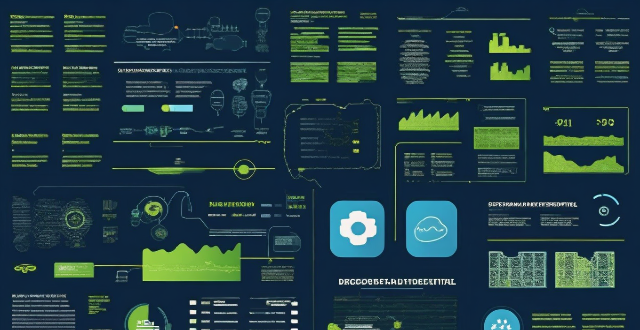
How does encryption work in securing communication channels ?
Encryption is a fundamental technique used to secure communication channels by transforming plaintext data into an unreadable format, known as ciphertext. It involves two main processes: encryption and decryption, and uses algorithms and keys for these processes. There are two primary types of encryption methods: symmetric and asymmetric. Encryption ensures that even if data is intercepted during transmission, it remains unreadable to unauthorized parties. It is vital in various applications to secure communication channels, including email, web browsing, mobile communications, and file transfers.

How does encryption contribute to network security protection ?
Encryption is pivotal for network security, offering robust defense against unauthorized data access and cyber threats. It transforms readable plaintext into ciphertext using sophisticated algorithms, protecting data at rest, in transit, or being processed. Encryption's economic impact is significant, with organizations leveraging it reducing financial impact of data breaches by over USD 220,000. The global encryption software market is projected to hit USD 20.1 billion by 2025. Regulatory compliance and standards are increasingly requiring encryption for data privacy and security. Its historical significance dates back to ancient civilizations, evolving from wartime secrecy to everyday data protection. Network security objectives include preventing unauthorized access, detecting and interrupting cyberattacks, and ensuring authorized user access. Data breaches have costly consequences, with the global average cost standing at USD 4.45 million per incident. A defense in depth approach involves layering multiple security controls between attackers and potential vulnerabilities. In conclusion, encryption is an indispensable component of network security protection, offering a robust defense against unauthorized data access and cyber threats. Its ability to transform plaintext into ciphertext, compliance with regulatory standards, and evolving sophistication through AI illustrate its dynamic role in safeguarding digital communications. For individuals and organizations alike, investing in encryption is not just a recommendation but a necessity for safeguarding against the ever-growing landscape of cyber threats.
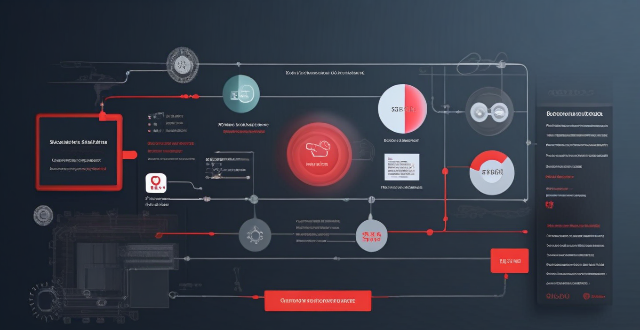
Can data encryption prevent data breaches and cyber attacks ?
Data encryption is a crucial security measure that can significantly reduce the risk of data breaches and cyber attacks by converting plain text into an unreadable format. However, it does not completely eliminate the risk of data breaches and cyber attacks. Encryption works through complex algorithms to scramble data so that it appears as random characters, requiring a secret key (or password) to decrypt the data back into its original form. There are two main types of encryption: symmetric and asymmetric. While encryption offers benefits such as confidentiality, integrity, authentication, and non-repudiation, it also has limitations including key management challenges, performance overhead, compatibility issues, human error, and advanced persistent threats (APTs). Therefore, organizations should implement other security measures such as firewalls, intrusion detection systems, regular security audits, and employee training programs to minimize the risk of cyber threats.

What are the different types of data encryption algorithms ?
Data encryption algorithms are crucial for securing digital information. They can be categorized into symmetric key, asymmetric key, hashing, stream ciphers, block ciphers, and hybrid encryption systems. Each type has its own strengths and is used in different scenarios to ensure data privacy and integrity.
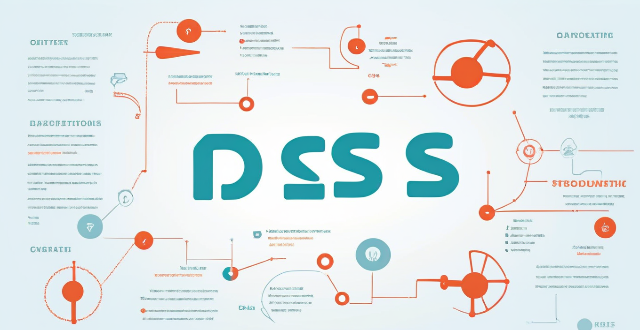
What are the risks associated with weak or improperly implemented data encryption ?
This article discusses the risks associated with weak or improperly implemented data encryption, which can lead to data breaches, loss of trust from customers and stakeholders, legal and regulatory compliance issues, difficulty in recovery, vulnerability to advanced threats, difficulty in detecting breaches, and diminished protection against insider threats. It emphasizes the importance of using strong encryption algorithms, implementing them correctly, and regularly reviewing and updating encryption practices to protect sensitive information and maintain trust.

**What exactly is end-to-end encryption offered by iCloud ?
End-to-end encryption is a security measure that ensures data transmitted between two endpoints, such as a user's device and iCloud, can only be read by the intended recipient. This means that even if someone intercepts the data during transmission, they will not be able to access or modify it without the proper encryption keys. Key features of end-to-end encryption offered by iCloud include: 1. Data Privacy: End-to-end encryption ensures that your data remains private and secure while being transmitted over the internet. 2. Security: With end-to-end encryption, even Apple cannot access your data because they do not hold the encryption keys. Only you and the recipient of your data have access to the keys needed to decrypt the information. 3. Trustworthiness: By offering end-to-end encryption, iCloud demonstrates its commitment to protecting users' privacy and building trust with its customers. 4. Compliance with Regulations: End-to-end encryption also helps iCloud comply with various regulations related to data protection and privacy, such as the General Data Protection Regulation (GDPR) in Europe and the California Consumer Privacy Act (CCPA) in the United States. 5. User Control: End-to-end encryption gives users more control over their data by allowing them to choose when and how their information is shared. For example, users can decide whether to use end-to-end encryption for specific types of data or for all their data stored in iCloud. Overall, end-to-end encryption offered by iCloud provides several benefits, including enhanced data privacy, security, trustworthiness, compliance with regulations, and user control.

Is data encryption necessary for all types of businesses and industries ?
The Importance of Data Encryption in Modern Business Operations Data encryption is a crucial aspect of modern business operations, ensuring confidentiality, integrity, and availability of sensitive information. Different types of businesses and industries handle varying degrees of sensitive data, requiring robust security measures. Healthcare, finance, e-commerce, and legal sectors are examples where encryption is necessary due to the nature of the data they handle or regulatory requirements. However, the necessity of implementing encryption can depend on factors such as the type and amount of sensitive data, risk assessment, and compliance with legal requirements. To implement data encryption, businesses must assess their needs, develop a data protection policy, choose appropriate technologies, integrate them into systems and processes, and regularly monitor and maintain these measures. While not always necessary for every business, data encryption is often a wise investment that can protect sensitive information and ensure business continuity.

Why is data encryption important for online security ?
Data encryption is crucial for online security, protecting dataData encryption is crucial for online security, protecting data the financial impact of breaches It has evolved from ancient uses to a critical tool in today's digital landscape, with AI optimizing key management and enhancing algorithms.

What are the benefits of using a virtual private network (VPN) for online privacy ?
The text discusses the benefits of using a Virtual Private Network (VPN) for online privacy. It highlights five key benefits: encryption and security, anonymity and privacy, unrestricted access to content, protecting personal information, and avoiding bandwidth throttling. The text explains that a VPN encrypts internet traffic, making it difficult for hackers or third parties to intercept data. It also masks the user's IP address and physical location, making it harder for websites and advertisers to track online activities. Additionally, a VPN can bypass geo-restrictions and censorship, allowing users to access blocked content. Finally, a VPN can protect personal information from being leaked or stolen and prevent ISPs from throttling bandwidth. Overall, using a VPN can provide several benefits for online privacy.

How does data encryption affect computer performance ?
Data encryption is crucial for securing data but can affect computer performance by increasing processor load, memory usage, disk I/O, network latency, and reducing battery life.

What are the risks associated with using public Wi-Fi networks ?
Using public Wi-Fi networks can expose you to various risks and vulnerabilities, including Man-in-the-Middle attacks, unencrypted data transmission, malware distribution, phishing scams, insufficient security measures, lack of privacy, session hijacking, and denial of service attacks. To protect yourself from these risks, it is essential to take precautions when using public Wi-Fi networks, such as using a virtual private network (VPN), avoiding sensitive activities like online banking or shopping, and keeping your device's software up-to-date with the latest security patches.
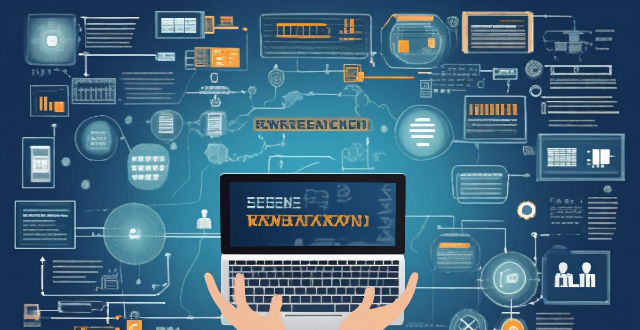
How can I ensure my business is protected from cyber threats ?
To ensure your business is protected from cyber threats, consider implementing measures such as educating employees on cybersecurity, using strong passwords and two-factor authentication, keeping software up-to-date, using antivirus and anti-malware software, securing networks with firewalls and encryption, backing up data regularly, limiting access to sensitive information, monitoring network activity, and developing incident response plans.
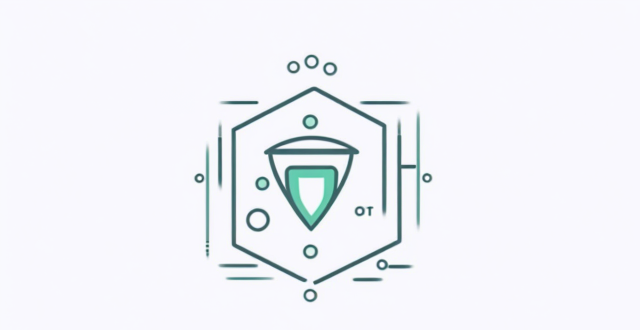
Does Wi-Fi 6 support the latest encryption standards for security ?
Wi-Fi 6, the latest wireless networking technology, not only significantly improves performance but also emphasizes security. It introduces several new features and technologies like OFDMA, MU-MIMO, BSS Coloring, and TWT to enhance data protection and user privacy. Wi-Fi 6 supports advanced encryption protocols such as WPA2 and WPA3, with WPA3 offering improved personal and enterprise network security. New technologies like BSS Coloring and TWT further enhance network security by reducing collisions and minimizing unauthorized access risks. The enhanced version of Wi-Fi 6, known as Wi-Fi 6E, utilizes additional frequency ranges to improve data throughput and create new opportunities for advanced security measures. As Wi-Fi 6 networks become more prevalent, security protocols are continually updated to address emerging threats, ensuring that the networks remain secure well into the future.
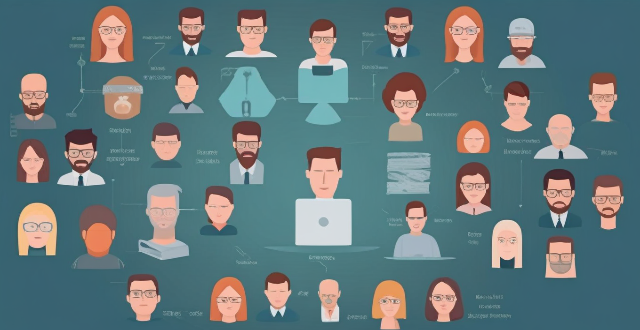
What are the risks associated with using outdated software ?
Using outdated software poses risks including security vulnerabilities, compatibility issues, and limited functionality. Regular updates are crucial for maintaining security, compatibility, and access to new features.

What are the benefits of using Cross-Border Payment ?
Cross-border payments are essential for global commerce, offering benefits such as increased access to markets, improved efficiency, lower costs, greater flexibility, enhanced security, and scalability. These advantages help businesses expand globally, making cross-border payments a vital tool for modern commerce.

What are the benefits of using hidden features in iOS ?
The text discusses the benefits of using hidden features in iOS, including enhanced user experience, increased efficiency, access to experimental features, troubleshooting and problem-solving, and advanced customization. However, it also warns that using these features should be done with caution as they may not work as intended or could potentially cause issues with the device if not used properly. It is recommended to research and understand the feature thoroughly before enabling or using it, and to back up important data before making any significant changes.

What are the technical requirements for using a remote education platform ?
The technical requirements for using a remote education platform include hardware such as a computer or laptop, webcam, microphone and speakers, and a stable internet connection. Software requirements include compatibility with popular operating systems and browsers, as well as any necessary plugins or extensions. Network requirements involve sufficient bandwidth, appropriate firewall settings, and VPN access if needed. Security requirements include strong authentication mechanisms, encryption of data transmission, and compliance with data privacy regulations. Accessibility requirements encompass mobile support, keyboard navigation, and screen reader compatibility. Meeting these technical requirements will help create an engaging and inclusive learning environment for all users.

What are some common online privacy breaches and how can I prevent them ?
In today's digital age, online privacy breaches are becoming increasingly common. To protect your sensitive data, it is essential to understand the risks involved and take necessary precautions. Some of the most common online privacy breaches include phishing attacks, malware infections, unsecured networks, social engineering tactics, and data breaches. Effective prevention strategies for these breaches include being skeptical of suspicious emails or messages, using anti-phishing tools, regularly updating software, using antivirus software, avoiding suspicious downloads, using virtual private networks (VPNs) on public Wi-Fi networks, securing your home network with strong passwords and encryption settings, educating yourself about social engineering tactics, being cautious with personal information, verifying requests for sensitive information, monitoring your accounts for suspicious activity, using strong passwords, and enabling two-factor authentication. By following these strategies, you can significantly reduce the risk of online privacy breaches and protect your sensitive data from unauthorized access.
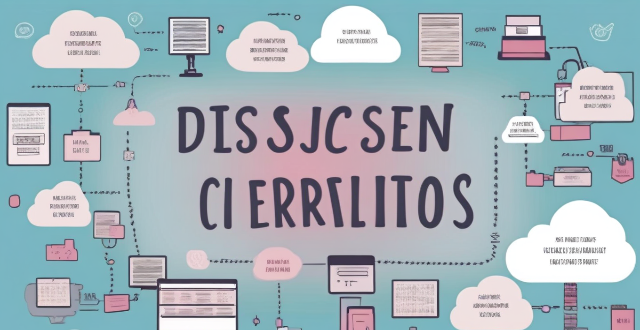
**What are the privacy concerns I should be aware of when using iCloud ?
The text discusses privacy concerns related to the use of iCloud, highlighting key points such as data encryption, access control, data retention, potential for data breaches, sharing and collaboration risks, and the importance of understanding Apple's privacy policies. It emphasizes the need for users to be aware of these concerns and take necessary precautions to protect their personal data stored on the cloud service.

What are the benefits of using a virtual private network (VPN) for network security protection ?
The text discusses the benefits of using a Virtual Private Network (VPN) for network security protection. It highlights seven key advantages: 1. **Encryption and Secure Data Transmission**: VPNs encrypt internet traffic, securing data transmission, especially on public Wi-Fi networks. 2. **Anonymity and Privacy**: By routing connections through remote servers, VPNs mask IP addresses and physical locations, enhancing online privacy. 3. **Access to Geo-Restricted Content**: VPNs enable users to bypass geographical restrictions, accessing blocked or restricted content. 4. **Protection Against Bandwidth Throttling**: VPNs can prevent ISPs from managing certain types of traffic by encrypting it. 5. **Enhanced Security on Public Networks**: Using a VPN on public networks adds an extra security layer against potential hackers. 6. **Remote Access to Work Networks**: For businesses, VPNs provide secure remote access to company resources. 7. **Avoid Censorship**: In regions with internet censorship, VPNs can help users access an unrestricted internet. The note emphasizes choosing a reputable VPN provider and practicing good cybersecurity habits for optimal protection.

How can I stay safe while using mobile banking apps ?
The text provides a detailed guide on how to ensure the safety of personal and financial information while using mobile banking apps. It suggests downloading apps from official app stores, keeping them updated, setting up multi-factor authentication, using strong passwords, being cautious with public Wi-Fi, monitoring account regularly, not saving log-in details, and being wary of phishing scams. These measures can significantly enhance the security of mobile banking activities and protect financial information from potential threats.

Can I use Apple Pay internationally ?
Apple Pay is available in over 20 countries and regions worldwide, allowing users to make convenient and secure payments using their iPhone, Apple Watch, or iPad. To use Apple Pay internationally, users need to ensure their device supports it and set up a payment method accepted in the country they are visiting. Using Apple Pay offers benefits such as convenience, security, speed, and compatibility with popular apps and services around the world.

How can I protect my personal information when using public Wi-Fi ?
Protecting personal information on public Wi-Fi involves using a VPN, avoiding sensitive info, visiting HTTPS sites, turning off sharing, updating devices, and being wary of phishing scams.

Are there any side effects of using a signal booster ?
Signal boosters can improve wireless connectivity but may cause side effects like overheating, interference with other devices, limited bandwidth, security concerns, and challenges from physical obstructions. It's important to consider these potential issues and take precautions to minimize them.

How do I take stunning landscape photos using my iPhone ?
To take stunning landscape photos using your iPhone, focusTo take stunning landscape photos using your iPhone, focus the rule of thirds and play with perspectives, and mind details such as color palette and moment timing. Post-process with editing apps and accessories like a tripod or external lenses for improved results.